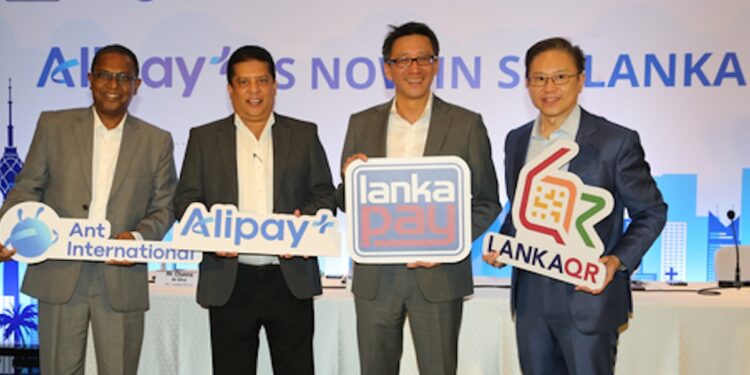LankaPay, Sri Lanka’s national payment network, collaborates with Ant International to introduce Alipay+ to the country. This announcement was made at a press conference on March 25, 2025, at the Shangri-La Hotel in Colombo. With Alipay+, over 400,000 LANKAQR merchants in Sri Lanka can accept payments from tourists and business travelers using 14 different international e-wallets.
In the first phase, travelers from 10 countries and regions can simply scan a LANKAQR code at these 400,000 merchants to make payments, just like they do back home.
The e-wallets that will accept cross-border payments in Sri Lanka include: Alipay (from mainland China), AlipayHK (from Hong Kong), MPay (from Macao), Hipay (from Mongolia), GCash (from the Philippines), Changi Pay and OCBC Digital (from Singapore), Touch ‘n Go eWallet and MyPB (from Malaysia), Naver Pay and Toss Pay (from South Korea), TrueMoney (from Thailand), BigPay (from Malaysia, Singapore, Thailand), and Tinaba (from Italy).
This launch is a big step for cross-border payments in Sri Lanka and opens up opportunities for travelers from important markets like Italy, Singapore, Malaysia, and China, as well as South Korea and Thailand.
Channa de Silva, CEO of LankaPay, expressed excitement about partnering with Ant International. He said that this collaboration is an important milestone, allowing international users of Alipay+ to make easy payments in Sri Lanka, just like they do at home.
LANKAQR is a national initiative started by the Central Bank of Sri Lanka to ensure all QR code payments are standardized and can work together. Launched in 2020, the LANKAQR network connects consumers, banks, and merchants into one payment system across the country.
Edward Yue, General Manager for Southeast Asia, Australia, and New Zealand at Ant International, mentioned that the LANKAQR system by the Central Bank and LankaPay is a strong base for the digital growth of local businesses. He believes that tourism will be very important for the global economy, and Sri Lanka will gain a lot from travelers who come looking for rich cultural experiences and nature.
Also Read: Your Data, Their Gold: The Silent Battle for Digital Freedom




















